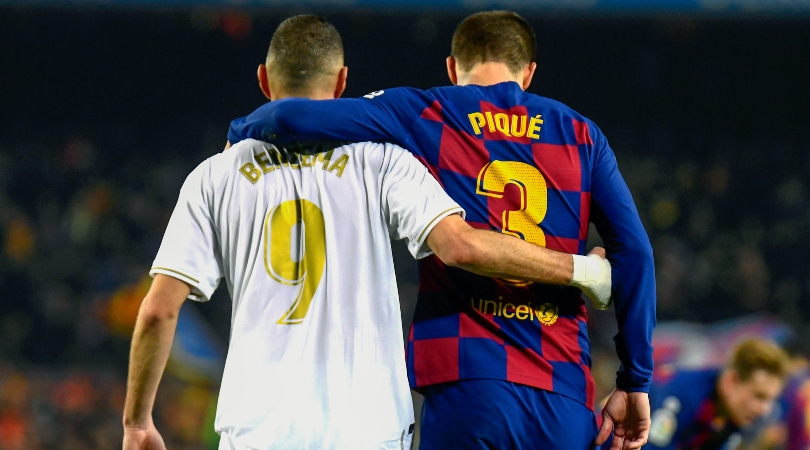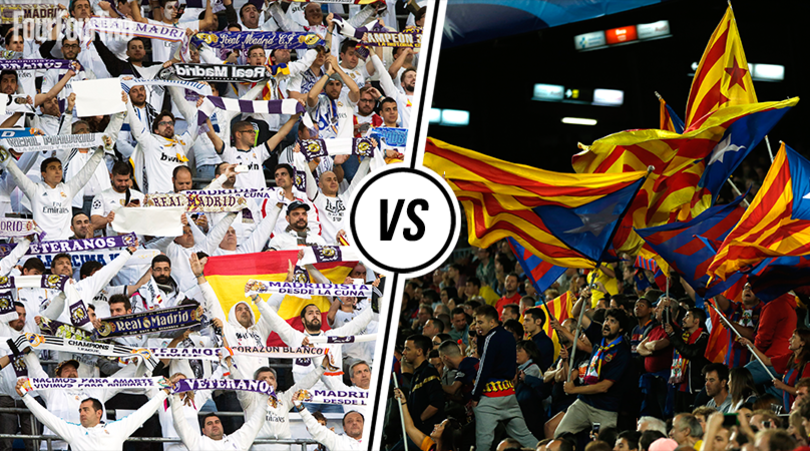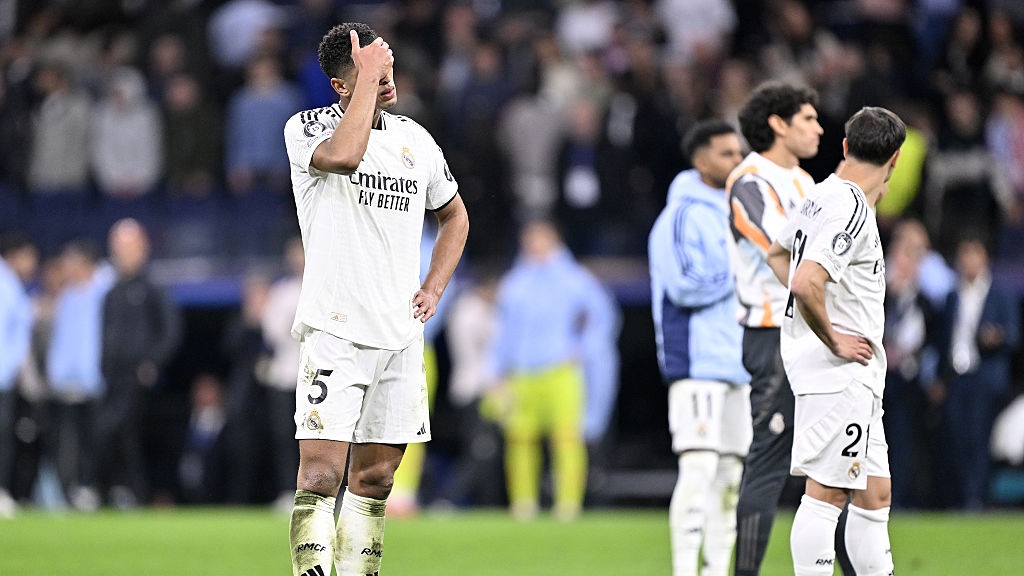The Clasico used to feel like a battle over how football should be played. Not any more
Wednesday night's 0-0 between Barcelona and Real Madrid still provided drama – both on and off-field – but it no longer delivers a struggle over football's soul

On Wednesday night, Barcelona and Real Madrid reminded us that there’s no magic in the fixture alone. This Clasico was still an occasion. Still rich in all its sporting and political symbolism and full of consequences, but it was like one of those battles at the end of a war which has already claimed too many lives.
What’s clear now is just how spoilt we were by what these games used to be. Looking back to the years Jose Mourinho spent throwing whatever he could over Camelot’s walls, that was a rivalry at the extremity of its being. The kind, ultimately, which cannot be counted on even once a generation. That's becoming clearer and it's also, conveniently, a prism through which to judge these teams.
Last night’s game was thoroughly entertaining. Especially for a 0-0, even if it was the first for 17 years. It was a shame Ferland Mendy was ruled marginally offside for Gareth Bale’s goal – what a plot-twist that would have been – but there was still enough meat on the bone. The touches, the flicks, the slick moves. All framed within Camp Nou’s vertical stands and under the weight of that towering camera angle. It passed the eye test.
More on Wednesday's game:
- First goalless Clasico in 17 years follows pre-match demonstrations in Barcelona
- Zidane happy after Real Madrid take point against Barcelona
But it lacked something and has done for some time. Not players, even though the fixture has suffered arguably the most debilitating talent drain in footballing history. Not really quality, either, because if even it's no longer an embarrassment of riches, it's still a decadent gathering of ability.
The modern peak was probably between 16 April and the 3 May 2011, when the clubs faced each other four times in 21 days. What people remember now about that – most likely – is how exhausting those three weeks were. Because of the press coverage, of course, with Mourinho and Guardiola fighting their battles in the press auditoriums as well as the technical areas, but also the attritional nature of the games.
They weren’t sporting events, they were passion plays. Enough time has passed for the accompanying histories to have been written, so we know now what was at stake – trophies and points were being won, of course, but friendships were being frayed, reputations were being altered, and a substantial part of the game’s modern history was being authored in front of our eyes.
Get FourFourTwo Newsletter
The best features, fun and footballing quizzes, straight to your inbox every week.
Camp Nou before kick off. pic.twitter.com/WHdZjQhlaC— Andy Mitten (@AndyMitten) December 18, 2019
It was – at times – almost election-like in its dynamic. A referendum on how football should be played. Mourinho and Guardiola stood for such opposing ideas that, really, it became impossible not to love one and hate the other. It didn't matter which, but you had to pick one. You got one X and one vote.
Perhaps what was also underestimated at the time was how binary the relationship between those two sides was. Barca were very much the ying to Real’s yang – and not just in the way they played. Sergio Ramos, Cristiano Ronaldo, Pepe on one side. Leo Messi, Andres Iniesta, Xavi Hernandez on the other. They were different players and people, but they also stood for different things and, conveniently, their personalities took on the identity of their clubs. Ronaldo and Real? They were the same. Like Xavi and Barca, they inspired the same reaction in people and were probably liked and disliked by very distinct personality types.
So it wasn’t a question of playing for Real Madrid or Barcelona, it was, instead, a case of being a Real Madrid or Barcelona player.
Those are deep themes. Almost biblical at their most extreme. Within those 2011 games played, every little moment would acquire this exaggerated significance. Mourinho’s midfield trivote, for instance, wasn’t just a containment tactic, but the ideological counterpoint to everything La Masia stood for. When Pepe trod on Messi’s hand, that was an assault on a belief system rather than just an act of petulance. And, when Messi took the ball off Sergio Busquets at the end of that first Champions League game in the Bernabeu, scythed through the Madrid half and hurdled Raul Albiol's hacking challenge, it felt as if he was doing more than just ending the tie.

FourFourTwo's 50 Biggest Derbies in the World, No.2: Barcelona vs Real Madrid
It’s rare that a rivalry has that kind of texture. Or, at least, it’s unusual for that set of circumstances to align at the very top of the game, under the watch of the two most visible coaching personalities in the world and in a fixture of such gravity. That was the fortunate aspect of it, for the public at least. The experience of watching it play out may have become draining, but – most likely, as the game evolves to become more sterile – we’ll look back and see just what a privilege it was to be exhausted by football.
Which is, albeit by the circuitous route, an appropriate way of measuring the deficiencies in these two teams now – not least because that’s all they are: football teams. They’re not proxies for philosophical convictions anymore and their patterns of play don’t even really represent specific ideas, certainly not any in obvious conflict.
That’s what’s missing from this rivalry. Identity. That's the precious commodity and because these teams are without it at the moment, because they're lost in the vastness of the clubs surrounding them, the whole tenor of their matches is different.
While you're here, why not take advantage of our brilliant subscribers' offer? Get the game's greatest stories and best journalism direct to your door for only £9.50 every quarter – just £2.90 an issue. Cheers!
NOW READ...
RANKED The 100 Best Football Players in the World 2019: first 50 names released
QUIZ Can you identify these 40 European clubs by their unusual nicknames?
GUIDE Premier League live stream best VPN: how to watch every game from anywhere in the world
Seb Stafford-Bloor is a football writer at Tifo Football and member of the Football Writers' Association. He was formerly a regularly columnist for the FourFourTwo website, covering all aspects of the game, including tactical analysis, reaction pieces, longer-term trends and critiquing the increasingly shady business of football's financial side and authorities' decision-making.
